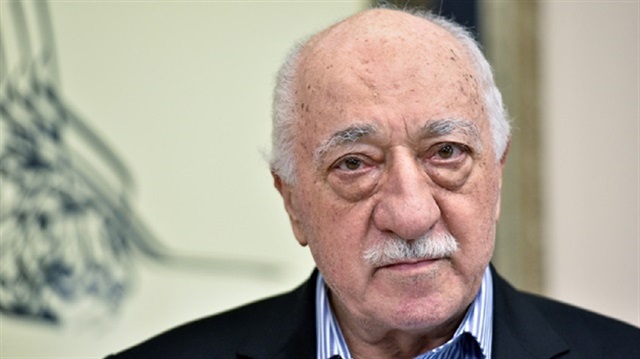
On July 15, 2016 a secret rogue section of the Turkish military launched an operation to overthrow Turkey’s democratically-elected government. The attempted coup was ultimately foiled by the resolute stance of Turkey’s elected government, officials and by the power of ordinary citizens who took to the streets in the hundreds of thousands in an act of mass resistance against the attempted takeover. As the days and weeks unfolded it became abundantly clear that the U.S.-based Fethullah Gulen, the leader of the Fethullah Terrorist Organisation (FETÖ), was the mastermind behind Turkey’s deadliest coup.
Turkey has been critical of its NATO allies for not condemning the coup in strong enough terms, instead choosing to focus on Ankara’s crackdown on suspected coup supporters. Moreover, FETÖ-affiliated organizations still operate in countries which are Turkey’s NATO allies.
In addition to its base in Europe and North America, FETÖ currently operates in 42 of the 57 countries within the Organization of Islamic Cooperation and runs over 2000 schools globally. Its main selling points in the international arena include its emphasis on education, Turkish culture and “moderate Islam”. While some FETÖ institutions in Africa, Turkic and Balkan countries have been shut down following the coup attempt, Turkey’s Western partners have not acted in a similar vein.
Currently, FETÖ institutions have not faced any significant pressure in the West, where they mainly focus on the education sector along with other NGOs, which are used as a medium for their greater institutional ambitions within diasporic communities. The guise of education is often used as a means of funding for its clandestine activities, which target high-ranking bureaucrats and those who hold significant political positions.
Three hundred FETÖ associations operate in Germany and, according to figures released by the German Interior Ministry in 2017, more than 600 military officers and civil servants from Turkey have applied for asylum in Germany since 2016.
The Confederation of Businessmen and Industrialists of Turkey (Tuskon) are among a number of Gülen-linked groups, which also include Unitee, the European Professionals Network (EPN), the Intercultural Dialogue Platform (IDP), and Zaman.
A report by the Foundation for Political, Economic and Social Research (SETA) on the U.K. and Germany found that FETO activities have been prominent in Europe, including the U.K., through the mediums of civil society, media, education and the economy.
Following Fethullah Gülen’s 1993 visit to the U.K., FETÖ’s presence and activities increased significantly in the country with the creation of an extensive sphere in which FETÖ terrorists could operate. Gülen-affiliated organizations operating in the U.K. include the Anatolian Muslims Association, established in 2004, the Mevlana Mosque, the Fellowship Educational Society, Turkey Institute, Dialogue Society and the Rumi Cultural Center, amongst others, which were all unified under the “Voices in Britain” platform after 2013.
The U.K. House of Commons Foreign Affairs Committee avoided referring to FETÖ as the “Parallel State Structure” (PSS) or as a terrorist organization in the report published after the July 15 coup attempt. The report’s lack of acknowledgment of FETÖ’s terrorism has been widely criticized in Turkey.
At the same time, it should be noted that the U.K. declared its support for Turkey’s elected government against the coup attempt, in contrast with the more ambiguous stance of other European governments, something that has not gone unnoticed and unappreciated by Turkey. Also, Akin Ipek, one of the leading funders of FETÖ, moved to the U.K. and currently is under the prosecution process in the country.
FETÖ’s freedom to operate is largely due to the fact that they are not regarded as a terrorist organization by many states outside of Turkey. A report on Turkey released by the European Commission (EC) in April angered Ankara after it referred to the Gülen network as “the Gülen movement” rather than FETÖ. The EC has also refused to recognize the culpability of FETÖ terrorists for the 2016 coup attempt.
Where the EC criticism has shown skepticism in regards to Ankara’s anti-Gülen measures, evidence of their infiltration of key state institutions and their role in the coup attempt has been too substantial to ignore. However, the lack of an explicit acknowledgement of FETÖ’s role in the attempted coup has undoubtedly caused a strain on relations between Turkey and the EU, and further adds weight to Turkey’s deep concern of FETÖ operating within parallel structures.
Focusing on civil society within the states in which they operate globally, the elite within the Turkish diaspora are seen by FETÖ as a key asset for the group to widen their influence within structures that will further their ambitions. However, It appears as though their power and influence in the diasporic community has decreased since Dec. 17/25, 2013 when FETÖ used its resources in the police, intelligence and judiciary against the elected government of Turkey. During that process, 12 complaints from unknown sources and without proof were sent to the prosecutor on the night of Dec. 17, 2013, who subsequently initiated the process to take many influential politicians into custody, including bureaucrats, politicians and businessmen.
The last straw for the Turkish diaspora was the coup attempt of July 15, 2016 which ultimately led to the dissolution of FETÖ’s influence within the general community. While the power of FETÖ over the Turkish diaspora has decreased, many followers moved or fled from Turkey to European countries, which has the potential to re-constitute the political power of FETÖ-aligned communities in the Turkish diaspora if European states do not take necessary measures.
The best way for removing the influence of FETÖ-affiliated organizations in Europe can only be by way of collaboration with Turkey. Currently, 108 FETÖ linked schools were replaced by the Turkish Maarif Foundation in African countries, and protocols were signed with 25 countries to take over new FETÖ-linked schools.
by










